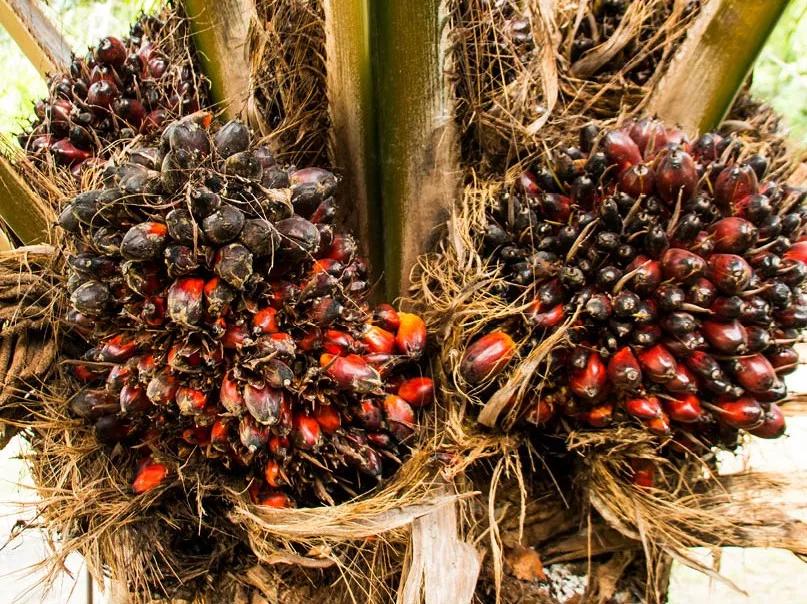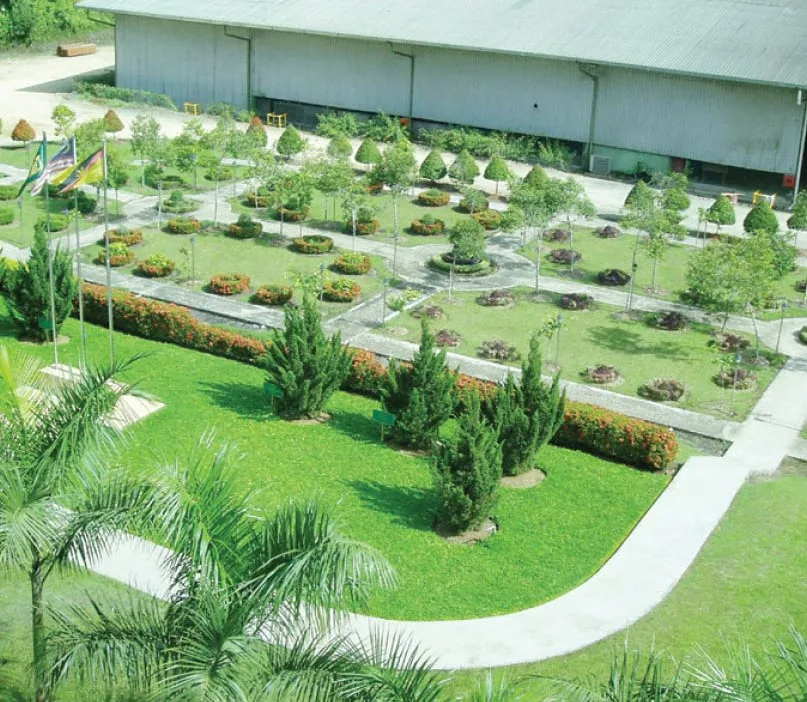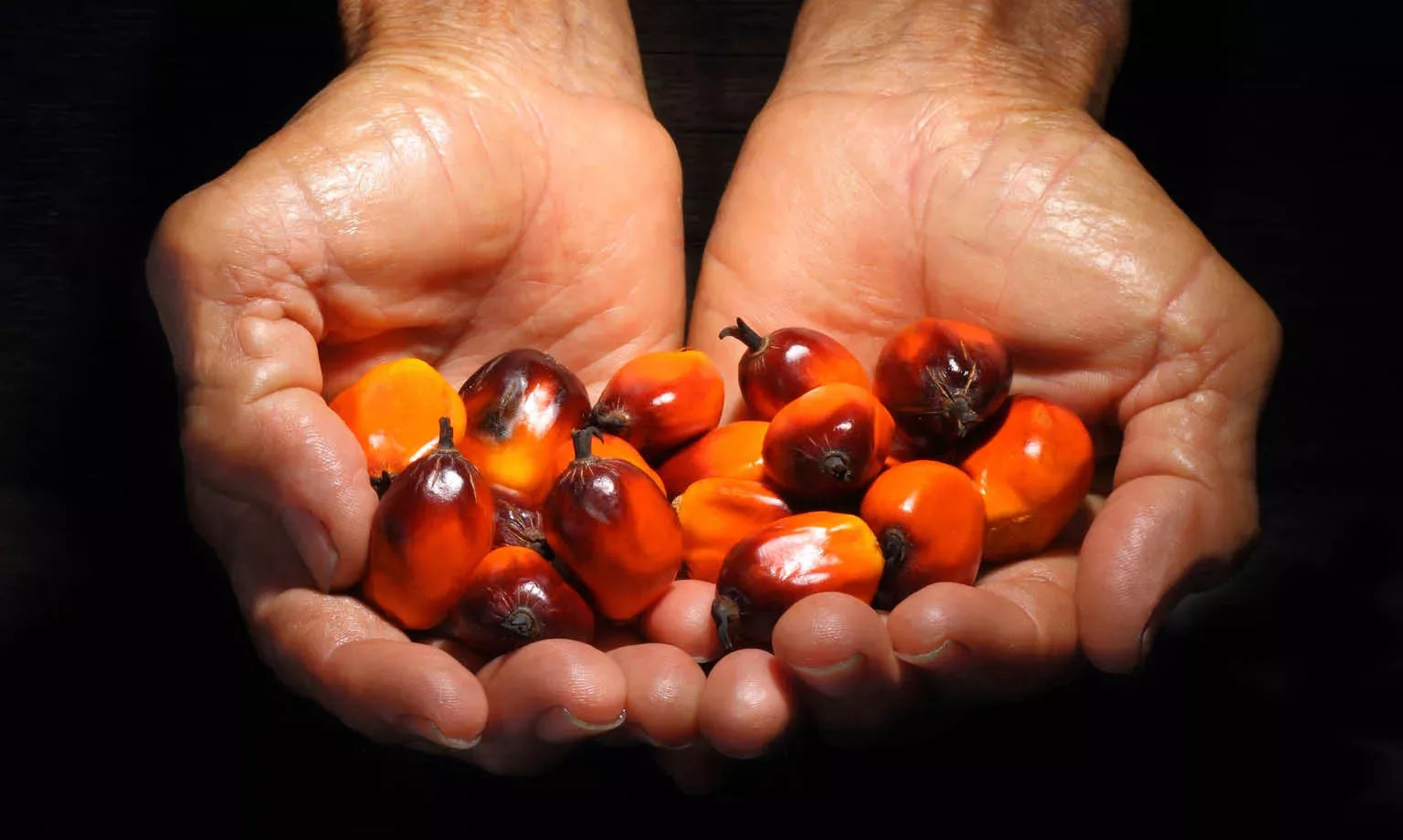Jaya Tiasa Holdings Berhad are one of Malaysia’s fastest growing oil palm players, listed on the Main Board of Bursa Securities Berhad with a market capitalisation of over RM2.5 billion.
BRANCHING OUT
Jaya Tiasa Holdings Berhad is a company listed on the Main Board of Bursa Securities Berhad, with a market capitalisation exceeding RM2.5 billion. The Group started off as a downstream wood processing company in Tanjong Ensurai, Sarawak in 1983. By 1994, Jaya Tiasa had constructed another four processing mills and proceeded to open them.
Dato’ Wong Sie Young, CEO of Jaya Tiasa, outlines how the Group have grown over the last 12 years: “Our timber processing operations have grown significantly over the years. In 2002, we diversified into the oil palm business. Our first Crude Palm Oil (CPO) mill commenced operation in 2009. Today, we are one of Sarawak’s leading oil palm players with an estimated plantable area of about 70,900 hectares, as well as being one of Malaysia’s foremost fully integrated timber producers, with access to over 1.76 million acres of timber concessions and an annual turnover of more than RM1 billion.”
As of May 2014, the Group have a workforce of about 4,500 employees who have a diverse mixture of backgrounds, experiences and expertise across its operations. To meet future challenges, remain competitive and ensure continued growth of their business, Jaya Tiasa strive to be an attractive employer with the ability to recruit, develop and retain the best people. “We develop our employees through training and education, respect individual integrity and human rights, offer fair pay and advancement opportunities and maintain a safe and motivating working environment,” says Wong.
Jaya Tiasa are constantly looking at new ways to expand operations sustainably. Their second CPO mill was commissioned in July 2013 with a processing capacity of 60-MT per hour of FFB. The construction of a third CPO mill is commissioned for August 2014, which will boast a processing capacity of 120-MT per hour of FFB. “Our target is to complete planting of our entire plantable area by early 2015. As of 31st March 2014, we had planted about 93% of our plantable area. We are also keeping pace with planting our forest plantations and currently in 2014, 29,063 hectares (21%) out of total plantable area of 140,377 hectares have been planted,” states Wong.
CRUDE PALM OIL (CPO)
Jaya Tiasa’s CPO milling has become a profitable venture but the markets are beginning to slow down a little. Malaysia and Indonesia are the world’s largest producers of palm oil. However, the El Niño spell that hit the region since the beginning of this year is threatening supply. The prospects of a reduced output and rising global demand may push up prices, so Wong is anticipating business in the market to be in the short to medium term.
China is the world’s second largest palm oil consumer after India. However, its recent economic contraction is likely to dampen the exports for palm oil, thereby easing prices. The local palm oil industry is also facing stiff competition from Indonesia, where more and more companies are turning to the sector due to its rich returns.
The anticipated higher production of soya bean from Brazil and the US will cause soya bean oil prices to plunge. Canada, the world’s top producer of Canola, recorded the best harvesting record of the crop last year. Such competing vegetable oils could potentially harm the palm oil rally.
The Malaysian government mandate to use B5 on 1st July 2014 and the Indonesian government recent raisingof the biodiesel mandate from 7.5% to 10% will lead to more CPO feedstock usage in biodiesel production. This will drive up the CPO demand, thus lowering inventory. This is again a positive sign for better CPO pricing.
It is Jaya Tiasa’s policy to ensure that their products comply with all regulatory criteria and adhere strictly to sustainable forestry and plantation practices to safeguard environmental and social values. In pursuit of this objective, they have obtained several green certifications including the CE Marking certification, which certifies that their plywood products have met European Union health, safety, and environmental requirements.
They have also obtained the Japanese Agricultural Standards (JAS) certification, which certifies that the quality of their plywood product meets their specific standard requirements for use in Japan; the California Air Resources Board (CARB) certification, which verifies that their composite wood products (hardwood plywood) are in compliance with strict formaldehyde emission standards as stipulated in the California Code of Regulations; and the International Standards for Phytosanitary Measures No.15 (ISPM15) Wood Packaging Material Treatment Providers certification. “This final” certification is very important to us as it was awarded in recognition of our efforts to reduce the spread of timber pests associated with solid timber packing material,” cites Wong.

PLYWOOD, VENEER, SAWN TIMBER AND LOGS
Japan has increased its import volume of panel products to meet not only the vigorous housing requirements but also in preparation for the various development projects, including the 2020 Olympics Games; which the country will be hosting.
Jaya Tiasa’s production and shipment of domestic plywood in Japan reached an all-time high this year; however demand is still much higher than the current rate of production output, something that Wong is keen to address over the coming year.
Demand for logs in India is expected to continue at current levels, driven by the country’s needs for affordable timber for building and renovation projects. India will continue to be the key tropical log importing country.
“We are therefore optimistic of the timber market especially with development going on in India. This will help to lead the market uptrend for other countries,” says Wong. “We are upbeat about the tropical log market following the Myanmar ban on all exports of logs in April 2014. Myanmar is Asia Pacific’s fifth largest log producer and third largest log exporter. With the export ban coming into effect, we expect to boost our log export quantity to India, especially the peeling grade, such as Meranti and Mixed Light Hardwood species, which were in the past reserved for the Japanese market,” Wong further states, and is confident that Jaya Tiasa will fill the void left in the market.
CHALLENGING TIMES
Oil palm plantations and wood processing mills are labour intensive industries. Locals are not keen to work in such industries resulting in a huge dependency on foreign labour, particularly from Indonesia. However, Indonesia itself is also undergoing rapid development of its oil palm plantations, which requires a large domestic labour force. Its local demand coupled with its rapid increase in minimum wages and the comparatively lower costs of living are critically affecting recruitment and retention. Labour shortage is generally the most pressing issue faced by all labour intensive industries in Sarawak, with the plantation sector most severely affected due to its less conducive working environment.
Another factor affecting the industry is the increase in overall costs involved, such as labour costs, resulting from the implementation of the new minimum wage policy, products such as fertilisers, pesticides, machineries and spare parts. All of these have significantly increased production cost, which in turn are also adversely impacting the bottom line of the Group.
Wong is also mindful of obstacles the Group face that they have no control over: “Inclement weather is another critical issue that affects our operations causing less favourable harvesting, inconsistent supply and transportation problems. This is worsened by the current unpredictable and chaotic weather pattern which undermines planning.”
One area that Wong is keen to address in the market is how to remain competitive amidst strong competition from other market players, who are producing different brands and/or substitute products. With the consumers always looking for cheaper ways to buy products at the expense of quality, the imitation market is growing stronger and genuine companies have found it to be a frustrating problem.
DIVERSIFICATION AND SUCCESS
Jaya Tiasa have been strategically diversifying their operations into the oil palm business, which has become a booming one in recent years. The Group have successfully planted a total area of 65,005 hectares, of which 55,438 hectares have matured as at 31st March 2014. The commissioning of their second CPO mill in 2013 has been very successful in supporting the higher crop levels from their surrounding plantations.
“We have invested heavily in machineries to assist in our field operations, especially in the area of infield FFB evacuation. Mechanisation has greatly increased the productivity of the workers and hence mitigated the dependency on more labour,” Wong states.
The success of Jaya Tiasa’s market diversification strategy is another noteworthy achievement. With the export of quality logs and wood-based products to more than 10 countries, the Group have one of the most diversified export sales markets among the Malaysian timber companies, which puts them in a commanding position in the Asia lumber market.
Jaya Tiasa have in place a highly effective transport system and a strong logistics team, meaning Jaya Tiasa can transport their log stock, either for sale or for downstream processing, within the allotted time and always with no damage to the product. The Group pride themselves on ensuring that all logs harvested are either sold, converted to panel products or utilised and delivered on time.
Wong, however, is always on the lookout for potential new ways to further streamline the business model and increase production level. “Perhaps, the most immediate improvement I would like is to implement more mechanisation initiatives at our estates, including the use of the bin system for sending FFB to the mills. Eventually, we hope to mechanise crop and field maintenance where possible, but this is more of a future plan than a current one,” he remarks.
A TREND IN NEED
The Malaysian government has initiated the Malaysian Sustainable Palm Oil (MSPO) and the Sarawak Oil Palm Plantation Owners Association (SOPPOA) has reaffirmed its commitment to adopt MSPO for the local oil palm industry. Many local planters have expressed their positive feedback on MSPO. “We also welcome this certification that takes into consideration the state geographic and economic conditions, and can really benefit us in the long run,” says Wong.
At this present moment, palm oil milling companies are under increasing pressure from the government to reduce the industry’s environmental impacts. More and more are looking to build composting plants to convert the palm oil milling wastes into organic fertilisers. The compost is a nutrient supplement for the healthy growth of the palm trees, which will help to increase the FFB yield and thus generate more revenue for the plantation.
The present labour supply shortcoming has compelled the plantation industry to maximise mechanisation to improve operation and reduce dependency on manual labour. There is definitely an accelerating deployment of some form of mechanisation in the industry. Although mechanisation is popularly being used for in field FFB evacuation, many are also trying to mechanise other aspects of the field operation.
The Malaysian Palm Oil Board has done some research on mechanisation and is keenly promoting it to overcome the labour shortage. Jaya Tiasa hope to capitalise on their findings and industry feedback in order to find the most suitable mechanisation to deploy.
OPTIMISING THE FUTURE
Jaya Tiasa have built up a successful Group, not just by looking at short term goals and gains, but rather looking towards medium and long term plans. Wong says that the Group have outlined strong plans for the Group’s growth in short and long term options: “In brief, our short term plan is to strengthen current measures to improve operational efficiency and effectiveness across all our business divisions, and to intensify our marketing strategy in exploring new opportunities for greater market penetration. Our long term plan is to seize any opportunities that may arise for expansion, as well as continuously developing the existing businesses to create value for shareholders.”
The supply chain is very significant to Jaya Tiasa’s business operations and is very important to their customers. “We need a smooth and continuous chain from our vendors and contractors who supply the necessary goods and services to enable us to produce, sell and tailor our products, and to deliver them to our buyers in a timely fashion in order to remain in the competitive market. We need effective, expedient and reliable partners who can ensure product quality because we are very conscious of our image,” Wong explains.
Jaya Tiasa will import contractors with specific areas of expertise and heavy machineries, but wherever possible, they will always try to source locally due to their continued commitment to boost the Malaysian economy and stay a truly Malaysian company.

BELIEF AND VALUES BREED SUCCESS
Jaya Tiasa are guided by the fundamental beliefs that certain organisational values must be in place and these values take precedence alongside the need to make a profit. Such beliefs include the need to strike a balance between their financial and non-financial performance, by placing greater emphasis on being a socially and environmentally responsible Group.
Jaya Tiasa also believe in having an effective and efficient management to formulate fast and responsive long and short term strategies in all areas to ensure they emerge with the competitive edge. Finally, the Group always place collaboration and recognition of contributions at all levels among staff as a top priority. “We have an unwavering commitment to our vision and mission statement throughout the Group and I will continue to ensure that this is shown throughout our work and projects,” says Wong.
PROUD OF CSR
Corporate Social Responsibility (CSR) plays a very important role at Jaya Tiasa as they strongly believe that being socially and environmentally responsible is the key to the sustainability of their long term business success. “We have to ensure our sustainable operation will continue to benefit the communities in which we operate, both environmentally and socially,” Wong explains. He goes on to mention that: “We have always been active in CSR activities and over the years have organised various charity drives for the autistic society, refuge centre, kidney foundation, and other local society care centres.”
Jaya Tiasa were recently honoured with another award by the Malaysian Red Crescent for their annual Give Blood, Save Life blood donation drive last year, which helped saved lives as well as replenishing the local hospital’s blood bank. It is an award that they have received for the fourth year running and it is a testimony to their continuing commitment to contributing in society.
When it comes to the workplace, Jaya Tiasa are constantly striving to become the best employer; their corporate mantra is to be the ‘Employer of Choice’. “One of our aims is to provide a supportive working environment in which all employees receive the relevant training in their area of work so that they will work more effectively and productively, as well as enhancing their professional development. We have a training and development department wholly dedicated to organising these trainings to upgrade the knowledge and skills of our workers to meet our business goals,” says Wong, who is very proud of Jaya Tiasa’s staff training initiatives.
Jaya Tiasa also believes in the development and maintenance of a balanced, healthy, and conducive work environment for continuous learning and personal growth. They try to achieve this by striking a work-life balance and promote healthy living for their employees with the holding of recreational and sports activities, annual dinners, festive gatherings and vacation trips.
SAFETY FIRST
Safety in the work place is the highest priority for the Group. The Safety and Health Department conduct frequent quality audits and safety checks at individual sites all year round to ensure that all safety requirements and precautions are strictly observed. A series of in-house training seminars on safety and health such as fire-fighting and fire drills, as well as workshops to create awareness on occupational hazards and promote workplace/ environmental safety and cleanliness, are organised and take place throughout the year.
Jaya Tiasa’s operations boast the highest environmental standards and are in compliance with environmental laws and regulations. In the Group’s daily logging operations, they are using the Reduce Impact Logging (RIL) techniques to minimise the negative impact of log harvesting on the environment and wildlife. “We are very much aware that deforestation causes climate change; hence forests are regenerated through our reforestation efforts to reduce global warming. Currently, three ongoing forest plantation projects involving a total area of more than 235,000 hectares are being carried out by us,” proclaims Wong.
For their oil palm division, Jaya Tiasa practice zero burning during land clearing and have adopted good agricultural practices in water management, manuring and weeding. In controlling pests, they have vastly reduced dependency on the usage of chemical pesticides by adopting biological controls and integrated pest management practices involving the use of light traps and planting of beneficial plants.
By-products such as Mesocarp fibre and palm kernel shells are utilised as feedstock for power generation in Jaya Tiasa’s palm oil mills. Empty fruit bunches (EFB) are recycled for application in the fields as mulch, whereas palm oil mill effluents (POME) are biologically treated before being discharged to the watercourse. The Group have also built a composting plant at one of their CPO mills to turn oil mill wastes into bio-organic fertilisers, which can then be used on the plantations.
“We are a responsible Group and believe in a clean living environment. Three of our subsidiary oil palm companies have enlisted specialist companies to set up a bio-digester system to ensure that no hazardous gases are being released into the environment by routing the trapped gas emitted to our CPO mills as clean and renewable fuel,” says Wong.






















